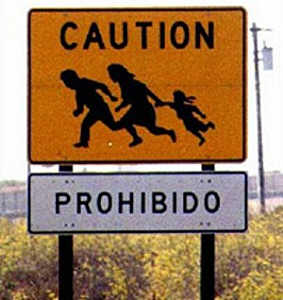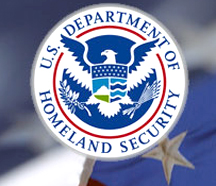Immigration News & Updates eNewsletter
eNewsletter
POSTING DATE: JULY 14, 2014
Learn More About:
This Week's Immigration News
Since reports of the barrage of children streaming over the Southern U.S. border from Central America became public recently, critics have begun using the crisis as an example of President Obama’s failed Immigration policy, charging that he created the influx of thousands of children from the southern region by enacting the Deferred Action for Childhood Arrivals (DACA) program for DREAMERS in 2012.
Conservative Republicans lead by Rep. Daryl Issa are calling for Obama to cancel the policy, which they believe is no more than an “Amnesty” for children. While its unlikely that the DACA program for DREAMERS will be cancelled during the term of this Administration, opposition from the “right” may have a negative effect on Obama’s plans to enact reforms using his administrative and executive Presidential powers.
Critics Blame President Obama For Southern Border Crisis
Immigration News & Updates eNewsletter © 2011 - 2014
For questions about U.S. Residency, Green Cards and Immigration Visas, Visit our Website at: www.ImmigrateToday.com or call our office at: (954) 382-5378
Immigration
Questions & Answers
Check Out This Cool Stuff For Immigrants....
Question: Hi. I applied for a U.S. tourist visa and I got denied and they gave me a 214 B form. Can you please tell me what does that mean?
Answer: A visa denial under section 214(b) is one of the most common types of visa denials, normally based upon the Consular Officer’s belief that the applicant has the “intent to immigrate” to the U.S. 214(b) denials are usually issued when a foreign national is not able to convince the Consular Officer that he or she has “Strong Ties” to their home country which would likely compel the applicant to return home at the end of their visit and not stay in the U.S..
Demonstration of “Strong Ties” includes documents which prove that the applicant is employed, owns a home or other real estate and has close family members who reside in the home country.
Most foreign nationals mistakenly believe that the fact that they have family in the U.S. will work in their favor when applying for a U.S. Visitor Visa (B1/B2). However, contrary to belief, close relatives in the U.S. such as U.S. Citizen or Resident parents, spouses or children can have a very negative impact on an application, since the mere presence of such relatives in the U.S. tends to show that an applicant might be more prone to want to stay in the U.S..
You can visit the State Department Website for information on the most common visa denial types:
Helpful Immigration Hints You Can Use
Immigration How To:
How Do I Make An Infopass Appointment?
Always Safeguard Your Vital Immigration Documents
While in the midst of hurricane season, it’s a good time to remind Immigrants and their sponsors about taking steps to safeguard your Immigration-related documentation, cards and certificates in case of potential loss, theft (automobiles, home) and of course, natural disasters such as hurricanes and water damage.
Steps to take:
The first step is to be sure that you always make a copy of the entire immigration petition and supporting documentation BEFORE sending to the USCIS.
You can find out more about Family and Employment Immigration by visiting our website at: www.Immigratetoday.com or by calling our office at: 954-382-5378
InfoPass allows you to schedule an appointment a the local U.S. Citizenship and Immigration Services (USCIS) office and to make an inquiry about your case with an Immigration Officer.
Click Here to schedule an appointment and select “Make Your Appointment with Infopass”
Type in your mailing address ZIP code (so that InfoPass will assign you to the correct USCIS office)
Select the type of appointment you need to solve your problem, Provide your name, date of birth, ZIP code and telephone number, choose an available date and time for your appointment (if you don’t see a convenient time, check back with InfoPass – new appointment choices are made available each working day); and when the appointment notice appears on your computer screen (showing the time, date and location of your appointment), print it out to show at your InfoPass appointment.
On the day of your appointment you will need bring:
Printout of the InfoPass appointment notice confirmation
Government-issued Photo identification (passport, valid driver’s license, Employment Authorization Document, or Form I-551, Permanent Resident Card (‘green card”)
All immigration forms, receipt notices, approval or denial letters-including translations and original documents that relate to your inquiry.
For general information you can call the USCIS at 1-800-375-5283.
Even some who support Immigration Reform for honest, hardworking Immigrants already in the U.S. who are part of the fabric of our nation, might reconsider if it would mean that such a program would encourage thousands of more Immigrants from Central America to continuously flood the border and cause security issues.
But even as the pressure rises on Obama to “fix” the border issues, Immigration advocates including the Congressional Hispanic Caucus and Center For American Progress Options continue to urge the Administration to implement big, bold reforms including the expansion of Deferred Action (currently granted to DREAMers) to all Immigrants in the U.S. who do not have legal immigration status. This would provide a quasi-legal status, work permit, Social Security card and Driver’s License and allow Immigrants to come out of the shadows and make a full contribution to society.
Other, alternative measures being suggested are at least the expansion of Deferred Action to Immigrants sponsored by family members in the U.S. and to the parents of DREAMers, as well as something called “Parole in Place” (PIP) which President Obama is currently providing to the immediate relatives (Parents, Spouses and Minor children) of active duty in the U.S. Military and the Reserves (who entered the U.S. without inspection by an Immigration Officer) who would not otherwise be eligible for any Immigration benefits – which now allows them to adjust status to U.S. Residency in the U.S.. If applied across the board to all Immediate Relatives of U.S. Citizens and U.S. Residents, millions of qualifying family members would be eligible to obtain Green Cards in the U.S..
The only measure which is more likely than not to be implemented is a new program which extends the right to join the Military to DREAMers. Other measures taken may depend in large part upon the politics of the border crisis and whether or not Obama is able to stem the tide of refugees crossing the border. If so, then he may find broad based support in expanding programs including Deferred Action and Parole in Place to as many Immigrants as possible. If not, he may be restricted to smaller programs which help certain categories of Immigrants, but which do not provide relief to a large portion of the Immigrants.
For now, the Whitehouse has its hands full trying to manage the crisis while at the same time advocate for Immigration Reform…the President has a tough road ahead. Stay tuned….
USCIS Provides Tips On Paying New Immigrant Visa Fee Through ELIS
Since implementation of the new Immigrant Visa fee, Immigrants are required to pay a $165 fee once their Immigrant Visa has been issued by the U.S. Consulate abroad, before entering the U.S.. Upon entry, Immigrants present the fee payment receipt to officers at the U.S. border as proof of payment and their Permanent Residency card is ordered. Those who have not paid the fee, never receive their Green Card.
The new fee must be paid on the USCIS website through its Electronic Immigration System (ELIS). The system is not as user friendly as it could be, requiring customers to first register on the system, then provide the Alien Registration number (A#), IV case, fee ID numbers and other information in order to make the fee payment. To make it easier, the USCIS has created a Webpage which provides tips and explanations of where the A#, IV and ID numbers can be located on the documents provided to the Immigrant by the U.S. Consulate.
Visit the USCIS Immigrant Fee Payment Tips Webpage:
Question: hello I am currently under the Dream Act protection and recently got a called from the military. I would like to join the military but one of their requirements is to have a green card. how can I get a green card?
Answer: Under current policy, Dreamers who have “Deferred Action” status are not eligible to join the U.S. military. This may change soon. If the House Republicans fail to pass Immigration Reform by the end of Summer, the President and the Pentagon are considering plans to change the policy to allow Dreamers to join the Military. Obtaining a Green Card is a little more complicated and will take a new Immigration Reform law. So for now, let’s wait and see what happens in the next few months. I hope this is helpful to you.
Second, make copies of all receipts, notices and correspondence to and from the USCIS. A good approach is to keep everything in a three hole punch binder in date order. People often keep such documents in the original envelope, which increases the chance of loss, since envelopes fall out of files. Also, this method makes it difficult to quickly access the documents needed.
Third, copies should always be made of original Birth Certificates, Marriage Certificates, Divorce Decrees, Citizenship (Naturalization) Certificates, Green Cards, Passports and I-94 cards (which should always be stapled into the passport to safeguard it from falling out and getting lost). Once copies are made, the originals should be kept safely together in a file and enclosed in a zip-lock bag or other waterproof container. Safety deposit boxes at your local bank are often free with your account and provide an additional method of protection, for original documents and copies.
Fourth, always immediately obtain a copy of every immigration petition along with copies of all supporting documentation and money orders and receipts from your Attorney. Don’t assume that such documents will be provided later. It is your right to have a copy of everything - always. Get formal receipts (with the attorney’s name and address) for all fees paid which specifically detail what the payment was for and once a petition is filed on your behalf, make sure you request the original receipt, doing the same with the approval notice. Also, never leave original documents with your attorney, since only copies of most documents are provided to the USCIS. Some exceptions would be original certified criminal documents, etc.
Finally, as an Immigrant, you should maintain your original immigration documents (and copies) forever, since you never know when you will need them. Don’t rely upon the USCIS immediately knowing and recognizing your status simply because you know it. The burden of proof is always on you to provide documentation, certificates, cards, passports, etc to prove to the USCIS that you have immigration status and benefits. Documentation is your strength and security.












